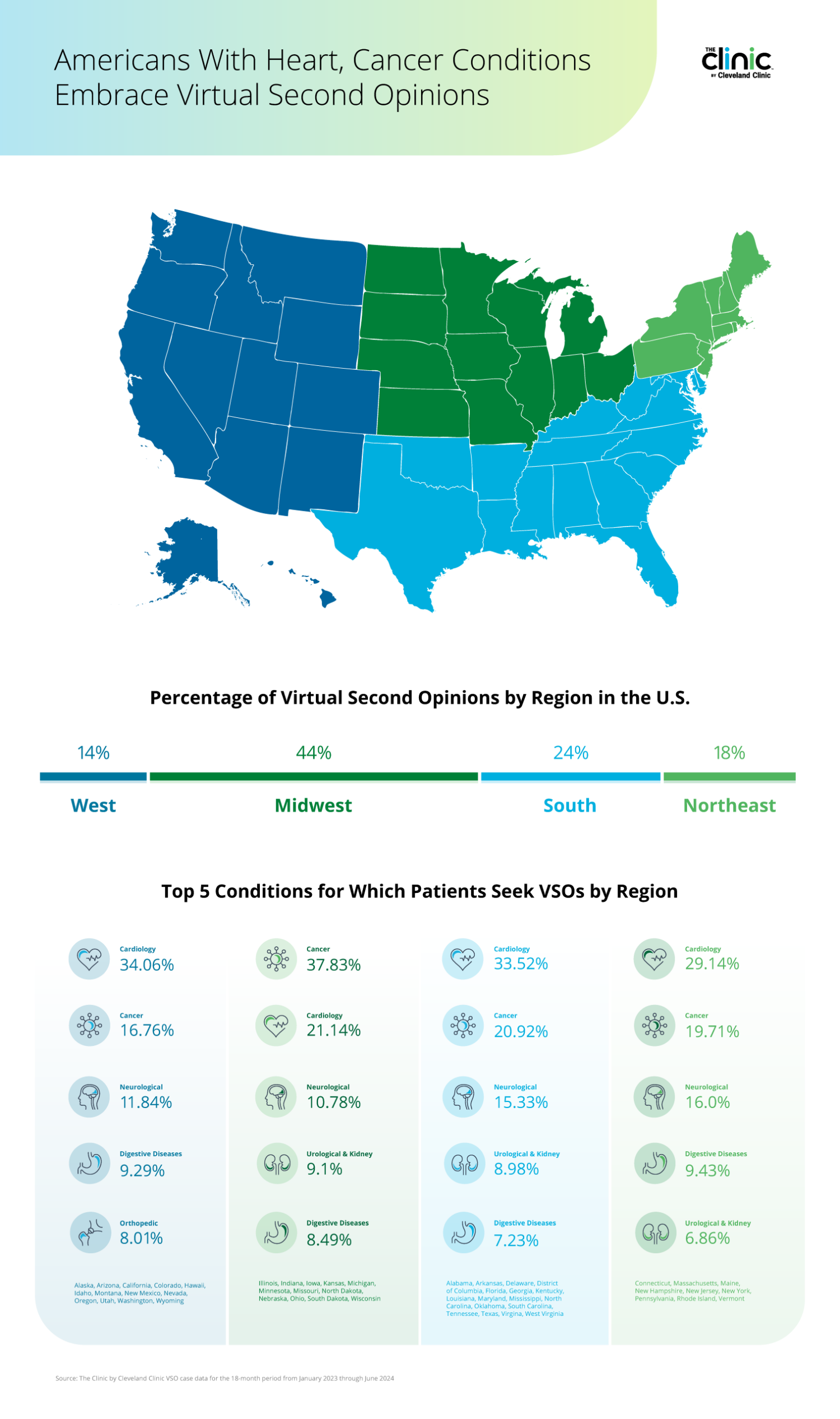
What You Should Know:
– A new study by The Clinic by Cleveland Clinic has shed light on the increasing demand for virtual second opinions (VSOs) in the US, with a particular focus on heart, cancer, and neurological conditions.
– This trend underscores the growing need for accessible specialty care, especially in regions facing healthcare provider shortages.
Specialty Care Deserts Drive VSO Demand
The national shortage of healthcare providers has created “specialty care deserts,” particularly in rural areas. This lack of access to specialists, combined with an aging population and increasing prevalence of chronic diseases, is driving patients to seek VSOs. The study found that cardiology and cancer cases accounted for the largest share of VSOs nationally.
Regional Variations
While heart and cancer cases dominated VSO requests across most regions, the Midwest saw a higher proportion of cancer-related VSOs, likely due to The Clinic’s health plan partnerships in the area.
- Midwest: 44% of all cases, with 38% related to cancer and 21% to cardiology
- South: 24% of cases, with 32% related to cardiology and 20% to cancer
- Northeast: 18% of cases, with 32% related to cardiology and 20% to cancer
- West: 14% of cases, with 32% related to cardiology and 20% to cancer
- Other common VSO areas: neurological, digestive, and urological/kidney concerns
- West-specific trend: orthopedic and rheumatologic VSOs were more common than urological/kidney
The Value of Virtual Second Opinions
The Clinic’s data highlights the significant benefits of VSOs. Beyond providing access to world-class specialists, VSOs lead to an average cost saving of $8,705 per patient. Moreover, VSOs are more likely to recommend alternative treatments to surgery and reduce hospitalization rates compared to initial care plans.
